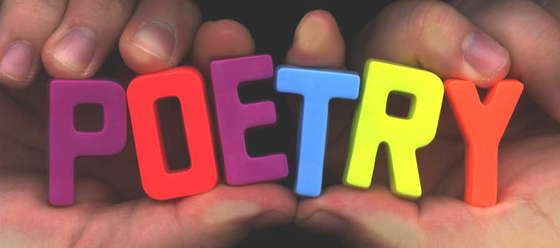What, after all, is mathematics but the poetry of the mind, and what is poetry but the mathematics of the heart?
--American mathematician David Eugene Smith
Besides boasting Earth Day on the 22nd, April is also Mathematics Awareness Month and National Poetry Month. If at first glance poetry and math seem as far apart as data and doughnuts, a closer look reveals a strong connection.
Especially in more traditional poetry, mathematical concepts influence the structure of a poem: its shape, the lengths of its lines and stanzas, and its patterns of rhythm and rhyme.
What would a Shakespearean sonnet be, for example, without its rhyme scheme (a-b-a-b, c-d-c-d, e-f-e-f, g-g) and its use of iambic pentameter? (An iamb is a unit of two syllables, with the accent on the second syllable; the pentameter tells you there are five of those units per line.)

Even people who profess to know nothing about poetry will recognize the strict rhythm and rhyme scheme (a-a-b-b-a) of the most memorable and maligned of all poetic forms, the limerick.
The limerick* packs laughs anatomical (*pronounced “lim’rick to preserve meter)
In space that is quite economical
But the good ones I’ve seen
So seldom are clean
And the clean ones so seldom are comical
Whether or not the “clean ones” are funny, there are some memorable G-rated math-themed limericks, like this one about Pi.
There was a young student from Rye
Who worked out the value of pi.
“It happens,” said she
“That it’s just over 3.
Though I’d rather you not ask me why.”
 Try this at home
Try this at home
It’s fun to compose limericks—try getting learners to write math-themed ones, maybe on the subject of “Why I love math,” or, if it gets a better response, “Why math should be outlawed.”
Have them notice the number of syllables per line and which line-ending words rhyme. Even without a math theme, writing a limerick is a math exercise in itself.
How do you say “I love you” in five syllables? Six? Seven? Take on this and other math-related challenges in Poetry Calendar: Mixing Math and Poetry (also available in Spanish).
Poet Elizabeth Barrett Browning did a lot with ten syllables: “How do I love thee? Let me count the ways.”
But perhaps it was Carl Sandburg, in his poem, "Arithmetic," who posed the best math-themed riddle:
If you ask your mother for one fried egg for breakfast and she
gives you two fried eggs and you eat both of them, who is
better in arithmetic, you or your mother?

